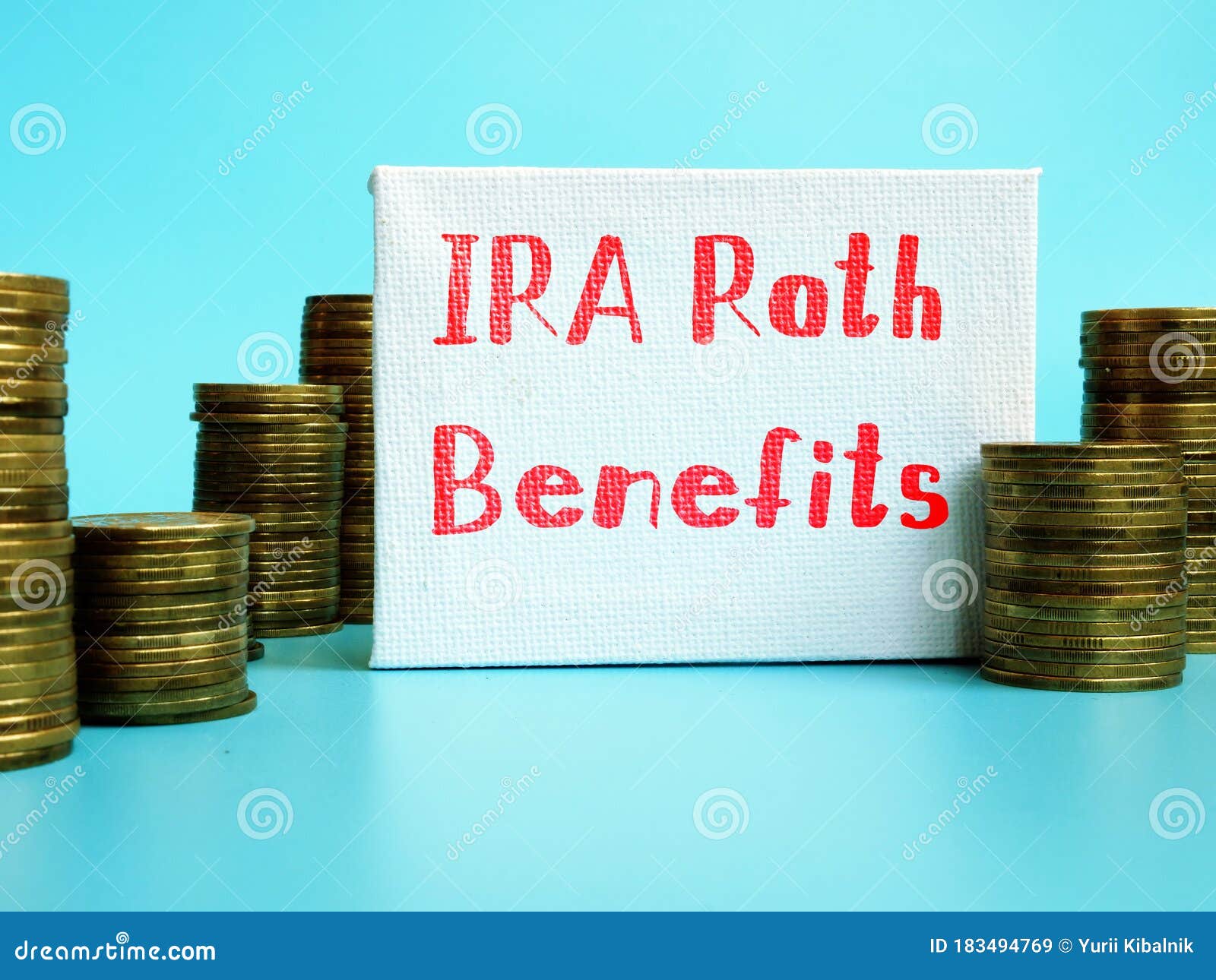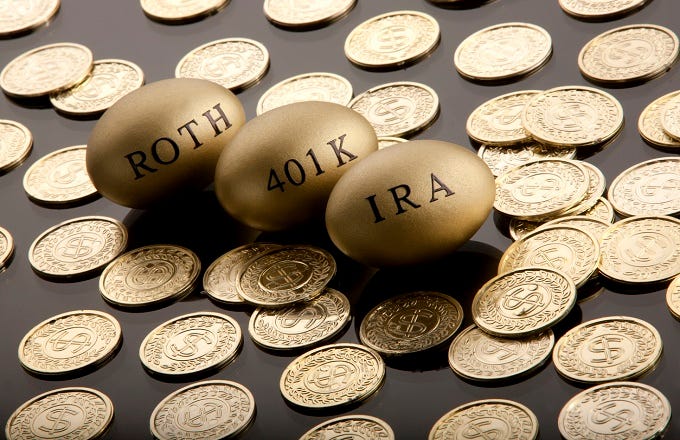
The risk of options expiring worthless is far greater than a stock going to $0. That said, I have some longer dated call options in my ROTH IRA but it’s all about your personal risk tolerance. Deep ITM calls are more of a stock replacement strategy, less risk of total loss. 55 While it’s great to make a profit, sometimes the profitability of stock options can cause trouble when you put them inside an IRA. IRAs have contribution limits ($5, or $6, if you’re age 50 or older in ), and they may impose penalties for excess blogger.com: Patricia Stallworth 04/01/ · 04/01/ · Roth IRAs aren’t usually made for active trading, but experienced investors can use stock options to hedge portfolios against loss or generate extra income. These strategies can help improve long-term risk-adjusted returns and reduce portfolio churn
Can Company Stock Options Go Into an IRA? | Budgeting Money - The Nest
The best Roth IRA investments are the ones that can take advantage of the way the retirement vehicles are taxed. There are no upfront deductions on contributions, but your investments grow tax-free inside the account. And withdrawals in retirement? They're tax-free, too—even on the earnings.
To take full advantage of the Roth IRA's tax-sheltering properties, it's best to hold investments that would otherwise trigger substantial taxes. Investments with high growth potential, big dividends, or high levels of turnover are prime candidates. A Roth IRA can hold any financial asset that a traditional IRA holds.
In fact, aside from life insurance and collectibles, Roth IRAs can hold just about any financial asset, period. Although they share the same tax-advantaged structure, Roth IRAs differ from the traditional variety in several important ways, stock options roth ira.
The biggest difference: Roth IRA contributions are made with after-tax, not pre-tax, dollars. Stock options roth ira you won't get an income tax deduction the year you make them. But you do get tax-free withdrawals in retirement, stock options roth ira. Also, unlike traditional IRAs, you aren't obligated to take distributions at a certain age from a Roth IRA. With no required minimum distributions RMDsyour account keeps growing if you don't need the money.
And when the time comes, stock options roth ira, you can pass it on to your beneficiaries. The unique characteristics of the Roth IRA mean that some investments suit it better than others. Below is a breakdown of the most common types of assets—and which types are the best to hold, stock options roth ira. Source: Investment Company Institute. Mutual funds offer simplicitydiversification, low expenses in many casesand professional management.
They are the darlings of retirement investment accounts in general, stock options roth ira of Roth IRAs in particular. When opting for mutual funds, the key is to go with actively managed funds, stock options roth ira, as opposed to those that just track an index aka passively managed funds. The rationale: Because these funds make frequent trades, stock options roth ira, they are apt to generate short-term capital gains.
These are taxed at a higher rate than long-term capital gains, stock options roth ira. Keeping them in a Roth IRA effectively shelters them, since earnings grow tax-free. Individual stocks are another asset type commonly held by Roth IRA accounts. In fact, Roth IRA investors are more exposed to equities than their traditional IRA counterparts. But the types of equities and equity mutual funds best-suited to a Roth fall into two basic categories: income-oriented stocks and growth stocks.
One is income-oriented stocks —common shares that pay high dividends, or preferred shares that pay a rich amount regularly. Typically, when you hold stocks in a non-retirement account, you pay taxes on any dividends you earn. Depending on whether they're qualified or nonqualifiedthe rate could be as high as your regular income rate. But, as with the actively managed mutual funds mentioned above, holding these within a Roth shields them from that annual tax bite.
Growth stocks are small-cap and mid-cap companies that seem ripe for appreciation down the road. But it won't matter that these stocks are worth substantially more when you cash them in after retirement. If held in a Roth, you won't owe any taxes on them at all. Remember, the whole strategy of the Roth IRA revolves around the assumption that your tax bracket will be higher later in life. Also, growth stocks can be volatile, so keeping them in a long-term retirement account that can withstand the ups and downs of the stock market over the long haul mitigates the risk.
Investors who trade equities frequently should also consider doing so from their Roth IRA. Doing so can shield any short-term profits and capital gains from taxes. When they think of income-oriented assets, many investors think bonds. Interest-paying debt instruments have long been the go-to for an income-oriented stream. Corporate bonds and other high-yield debt are ideal for a Roth IRA.
It's the same principle as with the high-dividend equities—shield the income—only more so. You can't invest interest payments back into a bond the way you can reinvest a dividend back into shares of stock a strategy to avoid taxes in regular accounts. The Roth's tax protection is thus even more valuable here. What about exchange traded funds ETFsthat rapidly ascending rival to mutual funds?
Certainly, these pooled asset baskets that trade like individual stocks can be sound investments. They offer diversification and good yields at much lower expense ratios than mutual funds. The only caveat is that, because most are designed to track a particular market index, ETFs tend to be passively managed that's how they keep the costs low. As a result, they invest infrequently, so you don't really need the Roth's tax-sheltering shell as much.
Still, it wouldn't hurt to have them in your account. Low annual fees and expenses—we're talking 0. There are indexes—and index funds —for nearly every market, asset class, and investment strategy. As with investing in individual stocks, the ETFs to look for would be those that invest in high-growth or high-income equities. Individuals have two ways to invest in real estate:. Real estate investment trusts REITspublicly-traded portfolios of properties, are big income-producers, though they also offer capital appreciation.
REITs invest in most kinds of real estate, including:. While most REITs focus on one type of property, some hold a variety in their portfolios. But not if they're held in a tax-sheltered Roth. You can invest in real estate using REITs, or you can go straight to the source. But you'll need a self-directed IRA stock options roth ira do so.
To invest in actual property, your Roth must be a self-directed IRA. There are very specific rules regarding real estate in an IRA. For example:. Otherwise, you could lose any tax advantages associated with holding real estate in an IRA.
Since Roth IRAs offer a tax shelter, there's no point in putting tax-exempt assets in one. Case in point: municipal bonds or municipal bond funds. Money market fundsCDs, and other low-risk, cash-equivalents investments are also ill-suited for a Roth, but for a different reason. What's to shelter in an asset that isn't generating much interest, to begin with? And the liquidity they offer is wasted in an account you aren't going to touch for years.
Annuities are more complicated cases. It depends on how soon you anticipate taking distributions from the Roth. The advantage of a steady, guaranteed tax-free income stream at retirement, however, might justify this strategy—if, say, you're stock options roth ira five years of closing that office door. In terms of how you should allocate assets, that depends on a range of factors, including your age, stock options roth ira.
In general, younger investors have a long-term investment horizon. They would typically allocate more retirement assets to growth- and appreciation-oriented individual stocks or equity funds, stock options roth ira.
Conversely, those who are retired or close to retirement would typically have a higher allocation of their investments in bonds or income-oriented assets, like REITs or high-dividend equities. One is to put all your IRA money into a single target-date fund. These are designed to work toward the year you plan to retire, automatically rebalancing along the way. Another stock options roth ira is to use a robo-advisor.
However, some brokers such as Charles Schwab provide this service for free. Finally, you can work with an investment professional who can manage your IRA for you. Many brokerages offer managed accounts. An annual advisory fee typically covers the ongoing management of your stock options roth ira, including investment selection, rebalancing, personal service, and support.
Left unchecked, these fees could quickly erode your earnings, leaving your nest egg a lot lighter come retirement. Overall, the best investments suited to Roth IRAs are those that:. These investments can truly take advantage of the way the IRS taxes income. And that means more money in your nest egg come retirement. Internal Revenue Service. Investment Company Institute.
Accessed March 22, Securities and Exchange Commission. Millennium Trust Company. Charles Schwab. Investing Essentials. Retirement Planning. Your Stock options roth ira. Personal Finance. Your Practice. Popular Courses.
Trading Options In A Roth IRA The Right Way [Episode 543]
, time: 3:57Reasons to Trade Stock in a Roth IRA - Financhill

The risk of options expiring worthless is far greater than a stock going to $0. That said, I have some longer dated call options in my ROTH IRA but it’s all about your personal risk tolerance. Deep ITM calls are more of a stock replacement strategy, less risk of total loss. 55 15/02/ · Under certain circumstances an IRA of an employee can be a qualified purchaser of stock under an option plan offerred to the employee as long as the IRA purchases the securities for cash from the company. However, most IRA custoidian will restrict investment in this kind of an offering 04/01/ · 04/01/ · Roth IRAs aren’t usually made for active trading, but experienced investors can use stock options to hedge portfolios against loss or generate extra income. These strategies can help improve long-term risk-adjusted returns and reduce portfolio churn
No comments:
Post a Comment